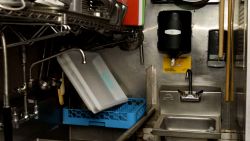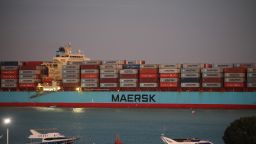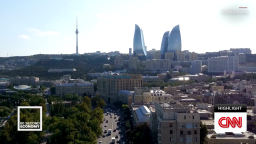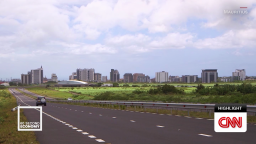Maersk and CMA CGN have introduced new charges to transport goods along many of the world’s busiest shipping routes after re-directing their vessels away from the Red Sea because of attacks.
Denmark’s Maersk said Thursday that it will impose a Transit Disruption Surcharge (TDS) immediately on 27 trade routes and an Emergency Contingency Surcharge (ECS) on those same routes from the new year, citing “risks, delays and difficulties” in sailing through the Red Sea.
For example, the cost of transporting a standard 20-foot container from North America to the Middle East will rise by $1,000 in total on January 1, the company said, because of a TDS of $200 and an ECS of $800.
Likewise, France’s CMA CGM announced Thursday that it will immediately introduce surcharges on 11 trade routes, explaining that several of its vessels had been re-routed around the southern tip of Africa for safety reasons.
For a 20-foot container travelling from northern Europe to Asia, for example, the firm said it had added $325 onto the shipping cost.
Shares in Maersk were up 2.8% by 11.44 a.m. ET. CMA CGM is a private company.

Both are among a group of shipping companies including Hapag-Lloyd and MSC that is now avoiding the Suez Canal — a narrow waterway connecting the Red Sea to the Mediterranean through which as much as 30% of container trade typically flows — because of concern for the security of crews and vessels.
Aerial assaults by the Iran-backed Houthis, who support Hamas and the Palestinian people, have become more frequent since the outbreak of the Israel-Hamas war.
Last Friday, Houthi rebels claimed responsibility for attacks on two MSC vessels as they sailed near the Bab al-Mandab Strait — the outlet of the Red Sea between the Horn of Africa and the Arabian Peninsula.
The febrile situation means shipping companies have re-routed some of their ships via the Cape of Good Hope, located on Africa’s most southern tip, adding weeks to transit times and increasing costs.
Ikea warned Wednesday of delays and possible constraints to the availability of certain products as a result of the ongoing attacks on ships in the Red Sea. The furniture retailer said it did not own any of the container vessels used to transport its goods.
Oil flows are also being disrupted. Already, the price of a barrel of Brent, the global oil benchmark, has risen 3.3% in a week to trade at $79. BP (BP) announced Monday that it would pause shipping through the Red Sea.
A six-day blockage in the Suez Canal in 2021 highlighted the importance of major shipping lanes. When the Ever Given container ship ran aground in the waterway in March that year, shipments of consumer goods from Asia to Europe and North America were delayed, exacerbating a crunch in global supply chains.






















